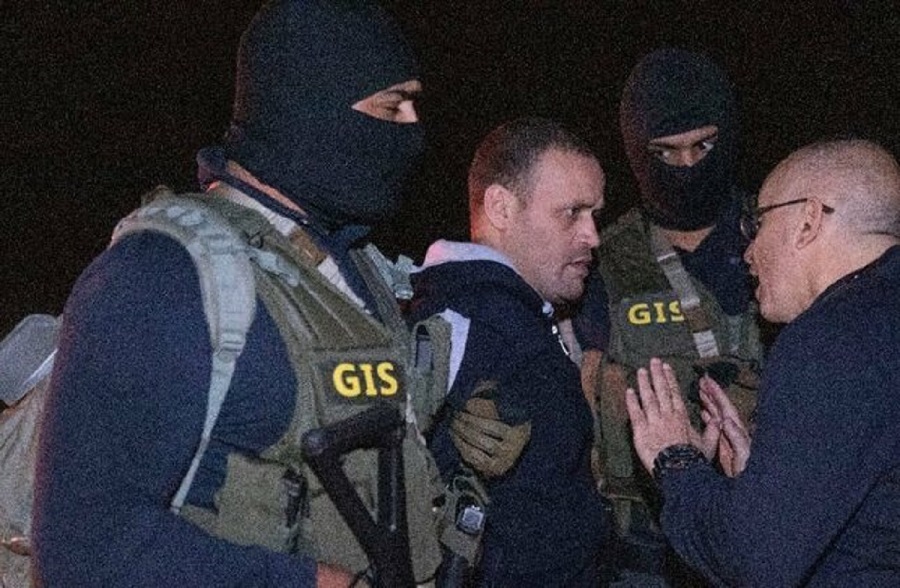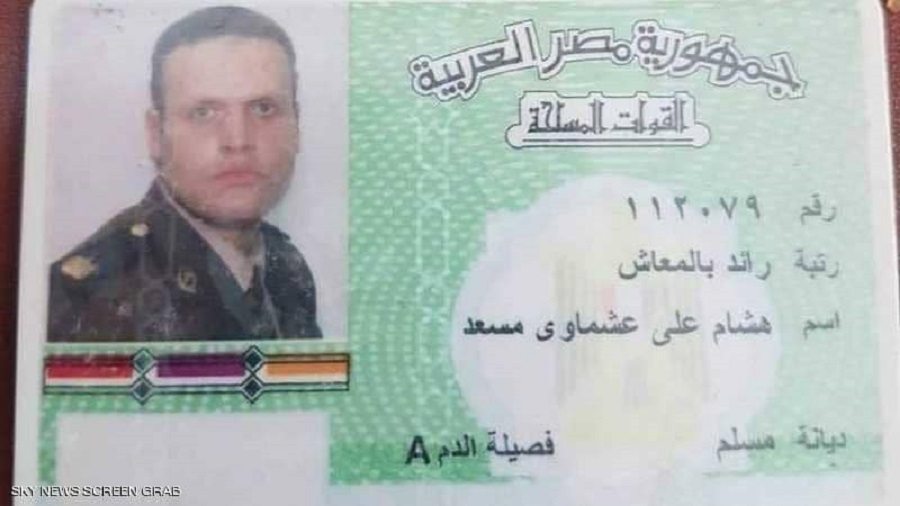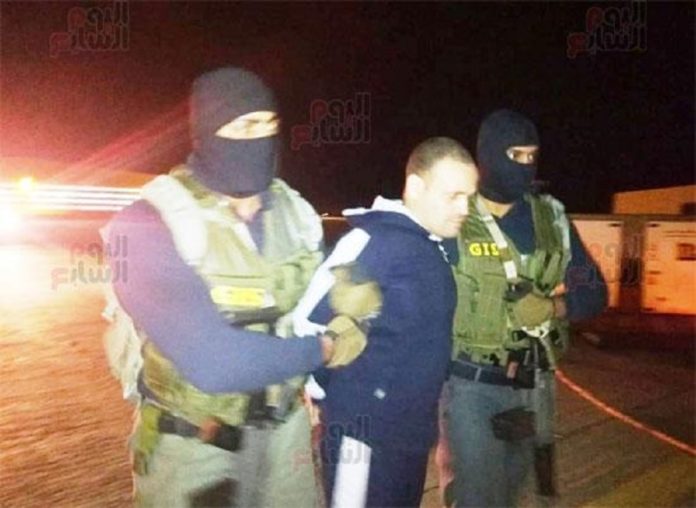The military spokesman of the Egyptian Ministry of Defense announced today through a video posted on Ministry’s channel on YouTube that the top militant Hisham Ali Ashmawi was sentenced to death killing 21 soldiers in 2014. The video included the charges against the accused, Hisham Ashmawi related to terrorist operations. The announcement of Ashmawi’s execution was limited to the charges without mentioning the court that issued the verdict, and is believed to be a military court.

The video broadcast by the Egyptian Armed Forces began with the Holy Qur’an related to the right of retribution, followed by his announcement of the execution of Hisham Ashmawi, saying: Today, the death sentence was carried out by hanging on the terrorist suspect, Hisham Ali Ashmawi, who committed the following crimes: (1) Participation in targeting the former Minister of the Interior Mohamed Ibrahim, on 5-9-2013, to monitor his convoy, photograph and plan his assassination. (2) His participation in planning and implementation of the threat of the merchant ships to the Suez Canal during the second half of 2013. (3) His involvement in smuggling a member of Jerusalem from a government hospital in Ismailia. (4) The aforementioned terrorist assumed the leadership of the terrorist group referred to as a successor to who namded “Abu Muhammad Muslim”, targeting military vehicles, and this led to the martyrdom and destruction of these cars of officers and individuals. (5) He was targeted, along with other members of the terrorist organization, in Ismailia security buildings on 19/19/2013 by a car bomb. (6) Participating with others in the process of targeting security buildings in an area called Inshas on December 29, 2013. (7) He targeted two armored vehicles sold to the Ministry of Interior in eastern Badr City, Cairo-Suez Road. (8) His participation in targeting a car sold to border guards, killing all its members, and seizing all the weapons in their possession.

The remaining charges included taking over the emirate of Ansar Beit al-Maqdis, following the killing of the mechanic terrorist Abu Ubaidah, and then moving to al-Tawmuz, east of the border guard post in Farafra. And his involvement in monitoring and reconnaissance and the plot of targeting and implementation of the terrorist attack on the Farafra border guard post, killing all its officers and members, and detonating its armory and ammunition store on 19-7-2014. In addition to participating in sniping operations of security rooms in the gates of the military units deployed in the vicinity of Abu Sawyer, al-Salihiya and al-Qassasin regions, targeting the civilian police ambush in the city of Abu Sawyer, in addition to infiltration into Libyan territory with some of the organization’s members and established under the legitimacy of Ansar al-Sharia in the Libyan city of Ijdabiya. And the founding of the Almoravid movement belonging to the terrorist organization Al Qaeda there.
The military spokesman concluded the video of his execution with the word, may God protect Egypt and its people from all harm and misfortune, without giving any details about the trial that ruled the death sentence and whether it was a military court or a civilian court.
Hisham Ali Ashmawi Musaad Ibrahim (1978-2020), is a former Egyptian army officer accused of masterminding a number of terrorist attacks on security targets and state institutions, including the Farafra ambush in 2014 and the assassination of Attorney General Hisham Barakat in 2015.

Ashmawi joined the army in 1996 until he became an officer in the Thunderbolt Unit Unit. At the beginning of the second decade of the twenty-first century, according to his wife’s statements, Ashmawi showed increasing signs of extremism, then the situation worsened after the death of his father in 2010 before he was officially said by the Egyptian armed forces in the next year in “mysterious circumstances” after he was accused of spreading extremist ideology and inciting violence. .
Al-Qaeda embraced him, joined him, and in 2012 he became involved with Ansar Beit Al-Maqdis, but he defected in 2015 after declaring his allegiance to the Islamic State (ISIS). Instead, Ashmawi formed his own organization called the Almoravids, which was based in Libya and remained loyal to al-Qaeda.
Hisham Ashmawi later became one of the “most wanted terrorists in Egypt” before he was arrested on October 8, 2018 by members of the Libyan National Army during the battle of Derna. By 28 May 2019, Ashmawi was handed over to the Egyptian authorities. The Egyptian authorities sent a military plane to deport him to their lands.
Signs of extremism began to appear on Ashmawi’s character since 2000, when he entered into an intense debate with a military man after he had erred in reading some Quranic verses during a sermon. His behavior, along with other actions, pushed Military Intelligence to keep him under surveillance. At the time, Hisham was distributing “salafi books” to his military colleagues. One of them even told Reuters news agency, “Ashmawi used to wake his fellow recruits at dawn and he encouraged them not to accept orders without being convinced of them. On the other hand, Nisreen said that her husband Ashmawi had changed after his father’s death in 2010 and described what happened “an important turning point” as he became depressed and moved to collect and read all of Ibn Taymiyyah’s works.
Ashmawi was first interrogated in 2006, the year when a close friend was tortured and killed in an army cell. This event also affected Hisham’s psyche, after which he severed his relationship with most of his colleagues in the army and SSI. Ashmawi was charged during the investigation with promoting extremist ideas and inciting state institutions and was tried in 2007 before being re-assigned to a management position in the Popular Defense Forces in the Egyptian army. It should be noted here that the exact dates and circumstances in which Ashmawy left the army remain conflicting, but the certainty is that the Military Court decided at one of its sessions in 2011 that Ashmawi should be formally sacked from the armed forces. Before being sentenced to death at dawn today

